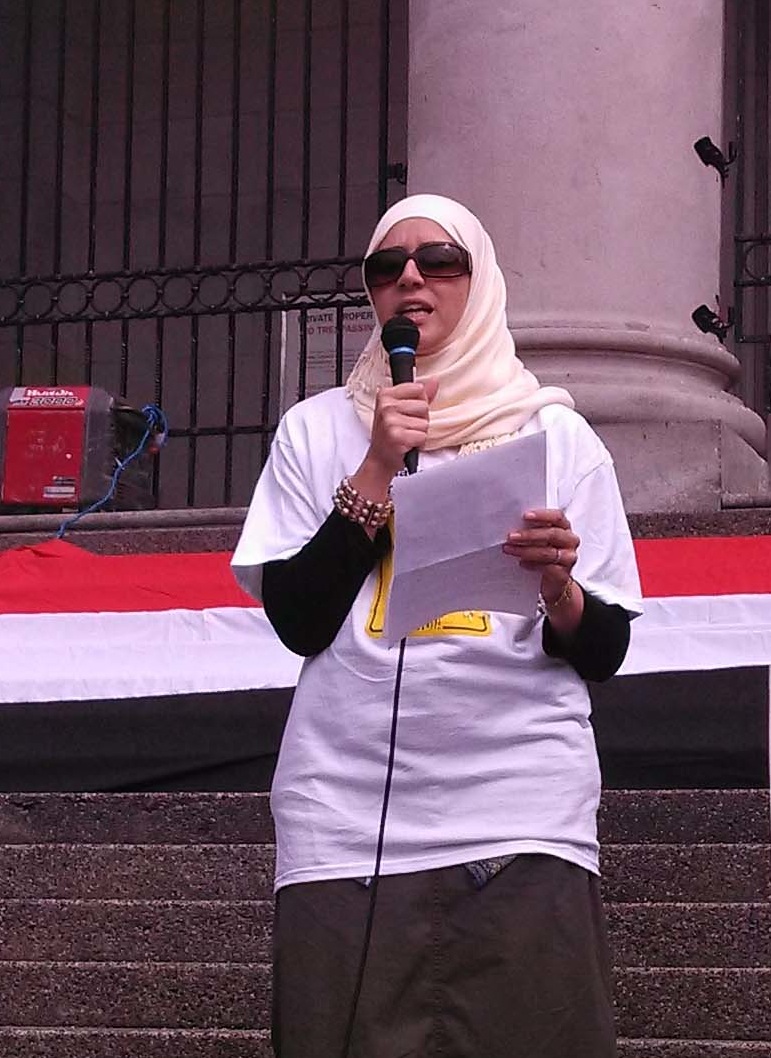Before President Mohamad Morsi had barely warmed his seat as head of state, demonstrations prompted Egypt’s military to remove him from office. After one year, the country’s first democratically elected president was now held at an undisclosed location. It was the only way, the military argued, that Egypt could be saved from political polarization and violence; the only way the country could restore democracy and avoid descending into chaos. But what has occurred over the last two months of military rule has been nothing short of chaotic.
Rabaa massacre
On August 14, the world watched in horror as security forces stormed two massive sit-in camps, located near Cairo University in the west side of the city and on the grounds of the Rabaa al-Adawiya Mosque in the east side. Police and soldiers torched tents while people slept inside.
They killed and maimed indiscriminately. Live ammunition and roof-top snipers were used to drive out peaceful protesters. What was left behind was a massacre the likes of which have never been witnessed in Egyptian history. Depending on the source, anywhere from 1,000 to 2,600 protesters were killed in the span of 10 hours.
A mosque and field hospital treating the injured and harbouring the bodies of the dead were set on fire. When all was said and done, Egypt’s military-led government called August 14 a “difficult day” but offered no apologies for the cold-blooded murder of men, women and children. Those looking to bury their dead were slapped in the face yet again when authorities compelled them to consent to “suicide” being the cause of death as a condition for the timely issuance of burial permits.
Since then, numerous other massacres have been perpetrated, opposition leaders have been arrested on spurious charges, anti-coup television channels have been shut down, journalists have been beaten, arrested or shot dead, detainees in jails who were not charged or tried have been killed, and martial law and curfews which had been applied for decades by Mubarak’s 30-year autocratic rule have been reinstated.
With the local media remaining under the absolute control of those in power, justification for their brutality is abundant. Aware that the world is watching, state TV posted a background banner in English calling this “a war on terrorism.” Such terrorism, they claim, is led or incited by the Muslim Brotherhood. The Muslim Brotherhood is an 85-year-old group. Over the last two years, it has won Egypt’s parliamentary, presidential, and syndicate elections. It commands the following of millions of Egyptians nationwide and remains the most organized and capable of peacefully mobilizing masses onto the streets. How then, does this military-led government expect to erase the existence of millions of Egyptians? If the rising death toll is any indication, they have already descended upon that task.
Lies and demonization
To further demonize the Muslim Brotherhood, Egypt’s military-led government has resorted to some of Mubarak’s same old lies. They have blamed the group for the burning of churches and the targeting of minorities; besides lacking any evidence, such retaliatory attacks against churches only strengthen the hands of the army.
In mid-August, Egypt’s Ministry of Interior arrested three men it accuses of being behind these despicable acts. Not one belongs to the Muslim Brotherhood. Indeed, the military’s murder of 28 Christians in October 2011 clearly does not place them in the role of saviours.
The military is not now, and has not been in the past, a protector of minorities. And the last two months provide abundant proof of their failure to unite belligerent factions. The military’s actions have dealt a serious blow to Egypt’s democratic transformation since Mubarak. In spite of the appointment of Adli Mansour, a titular president, and his shabby government giving a much-needed civilian veneer, it is clear that Egypt’s military dictator, General Abdul-Fattah El-Sisi, and his junta are at the helm.
The facts of this story are quite clear. Egypt’s military has elected to use its weaponry to tighten its grip, sending a clear message to all: bodies on the street are now the new currency of power.
Despite all this, no amount of deceit and preposterous lies by the state media can cover up the facts. Egyptians remain defiant. Daily anti-coup rallies in support of democracy have drawn tens of thousands across the country.
The more people die, it appears, the more people take to the streets — until the Egyptian dream comes true.
Shereen Ginena is an Egyptian Canadian residing in Vancouver.
This article is adapted from a speech delivered to a rally in Vancouver, Canada on August 24, 2013 protesting against the July 3 military coup in Egypt and the violence by the military regime that seized power that day.



